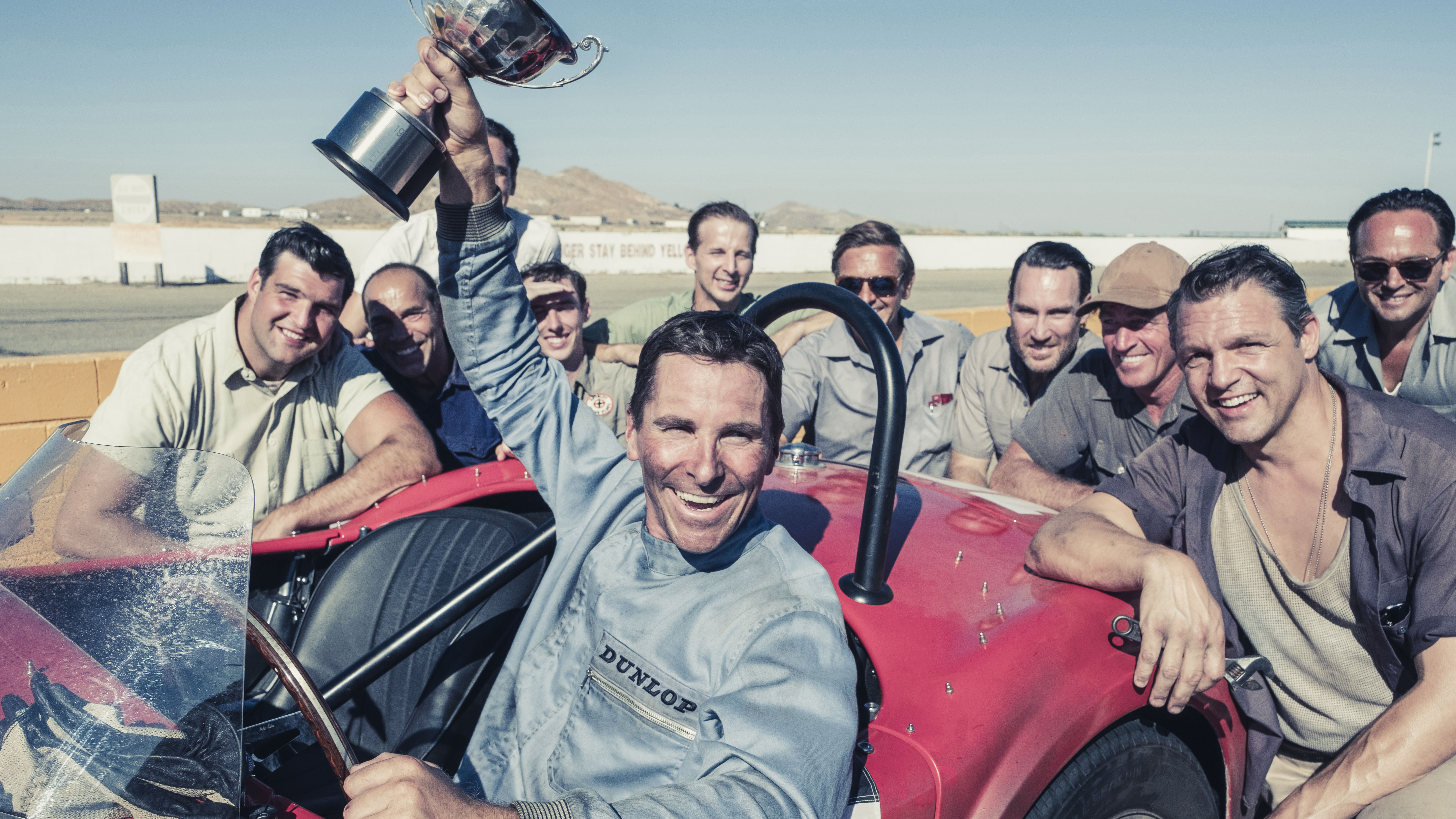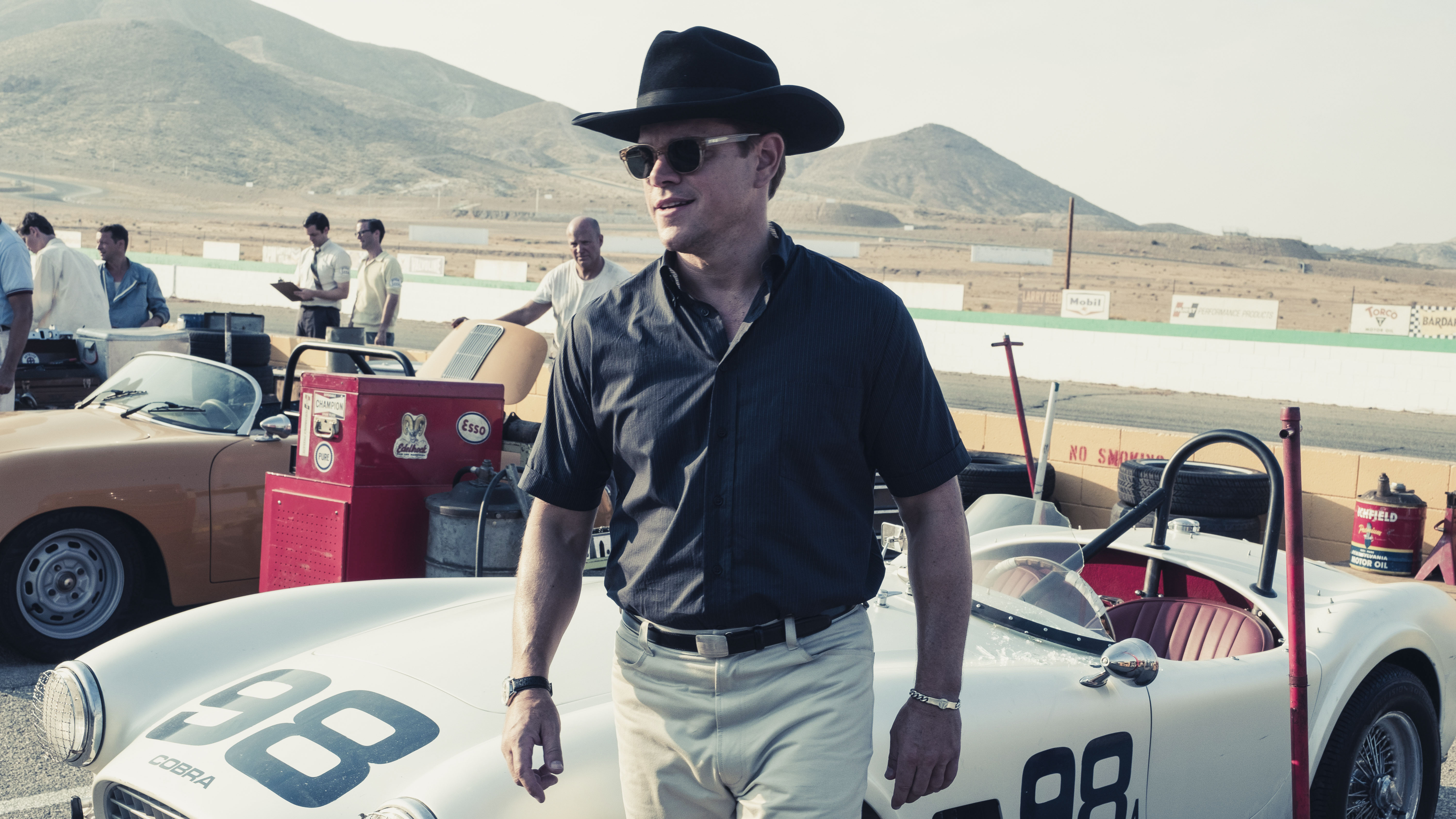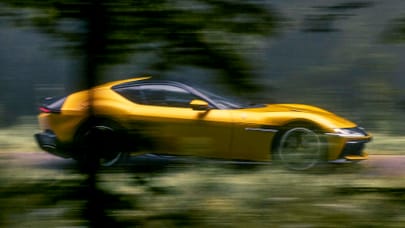
TG's review of Le Mans '66
How does the famous Ford vs Ferrari battle play out on the big screen?
Is motor racing really that difficult for Hollywood to get its head around? You’d think so, given some of the dreck that’s been peddled over the years. Somewhere in the nexus between John Frankenheimer’s 1966 split-screen classic Grand Prix, 2006’s wonderfully absurdist Talladega Nights and 2010’s masterful documentary Senna there lies a great motorsport movie. Now we can add Le Mans ’66 to the list of aspirants. It gets closer than most, but still locks up into some over-familiar narrative chicanes and runs wide on the exit.
It’s called Ford v Ferrari in the US, which gives you a pretty clear idea of the story parameters. In 1963, Henry Ford II took his brilliant vice president Lee Iacocca’s advice and sought to buy Enzo Ferrari’s company as a short-cut to the sort of pan-global prestige and racing pedigree the Blue Oval painfully lacked. Rebuffed by the wily Commendatore, who would later cash in his chips with Gianni Agnelli’s Fiat instead, Ford determined to beat Ferrari’s posteriore where it mattered – on the race-track.
The source material is a book called Go Like Hell by A.J Baime, which has been doing the rounds in Hollywood since its publication in 2009. Tom Cruise and Brad Pitt were firmly attached at one point, with a script by British playwright Jez Butterworth, his brother John-Henry, and Jason Keller. That’s now been extensively reworked, and instead of Cruise and Pitt we’ve got Matt Damon and Christian Bale, as A-list a combo as it gets. (Interestingly, the latter was in pre-production to play Enzo Ferrari in a biopic directed by Michael Mann, before Bale bailed.) James Mangold (Cop Land, Walk The Line, Logan) directs.
Although the backdrop is still Ford versus Ferrari, the focus is much more on Ford’s efforts to develop a half-decent racing car, and within that the pivotal role played by Carroll Shelby and the British expat driver, engineer and former WWII tank commander Ken Miles. Miles is something of a footnote in the glorious history of the Ford GT40, an injustice the film assiduously seeks to redress, while the relationship between him and the Texan chicken farmer turned Le Mans winner (Shelby won in 1959, driving an Aston Martin DBR1) gives the story the prototypical bromance undertow.
Mangold loves classic Hollywood westerns; for Shelby and Miles read Butch Cassidy and the Sundance Kid, armed with rather more in the way of horse-power.
This is an old-fashioned buddy movie at heart, accelerating towards that epochal 24 hours in Le Mans for Ford
Once Shelby is brought on board to trouble-shoot the GT40 programme – it started disastrously and the Deuce instructs him to ‘go to war’ – his insistence on involving his irascible Limey best mate inevitably puts him on a collision course with the Ford bosses. In particular, Henry Ford II’s trusted lieutenant Leo Beebe, later appointed racing director, isn’t just hell-bent on winning, he’s hell-bent on doing it the Ford way. A 48-year old Brummie lone wolf doesn’t fit the brief, regardless of how fast he is or what kind of surreal empathy he has with the machinery. Spoiler alert: Miles wins the ’66 Daytona 24 hours, the Sebring 12 hours, and is on course to wipe the floor with everyone at Le Mans in June 1966 and score the triple crown when fate – and venal corporate PR – intervenes. In other words, it’s not just Ford v Ferrari, it’s Carroll and Ken v the world. Or indeed Us v Them.
There’s no question it’s a great tale, and James Mangold is a deft, intelligent film-maker. Alongside director of photography Phedon Papamichael, he delivers a magnificent looking movie – the mid-1960s California milieu is evocatively sun-kissed, the production design is nuanced, and even the oak paneling in Ford’s Dearborn HQ feels uptight. Matt Damon and Christian Bale are both excellent, the former’s character side-lined by a heart condition and seeking the racing buzz vicariously, the latter a slightly broken hero on a last-chance power drive (with apologies to Bruce Springsteen). The other stand-out performances come from Tracy Letts as Henry Ford II – he has a couple of glorious scene-stealers – and Josh Lucas as the loyal but slippery Beebe. Catriona Balfe does her best with a rather under-written part as Miles’s inevitably long-suffering wife, and Noah Jupe is superb as his young son Peter.
But this is an old-fashioned buddy movie at heart, accelerating – perhaps not quite fast enough across its 152-minute running time – towards that epochal 24 hours in Le Mans for Ford. So how good are the racing scenes? Hmm. Despite its lamentable script, for me Steve McQueen’s 1971 Le Mans folly still nails the noise and madness of endurance racing better than anything else I’ve seen, and for all that Mangold was determined to avoid CGI (he does, mostly), the climactic racing scenes here are slick without being truly jaw-dropping.
One notable film critic opined that the film ‘can’t reach out beyond the petrolhead fanbase’; well, I’d argue that the endless cutaways to feet dancing on pedals, racing-gloved gearshifts and rev counter close-ups are exactly the sort of thing that set our teeth on edge. They’re unnecessarily crude ways of signalling to cinema-goers who wouldn’t know a Ford GT40 from a Ford Fiesta that, you know, Sixties endurance racing was a total head-f*ck and the guys who did it were genuinely heroic men, if certifiable.
Top Gear
Newsletter
Thank you for subscribing to our newsletter. Look out for your regular round-up of news, reviews and offers in your inbox.
Get all the latest news, reviews and exclusives, direct to your inbox.
Whatever they were, I very much doubt they had time to glance over at each other – as Miles does to a hilariously caricatured Scarfiotti in the Ferrari 330 P3 – in the heat of battle. C’mon guys, it’s not Dastardly and Muttley. Nor was Enzo Ferrari even present at Le Mans in 1966, probably the most grievous but far from the only example of poetic license on display here.
On the other hand… it’s a movie. And a mostly very enjoyable one. That it plays better for the non-car, non-expert chunk of the movie-going public might sound paradoxical, but there’s enough universality in this particular motor racing story to keep everyone happy. And Ken Miles finally gets his moment in the sun, too.
(Le Mans ’66 opens in cinemas nationwide on November 15th)
Trending this week
- Car Review
BMW 1 Series
- Top Gear's Top 9
Nine dreadful bits of 'homeware' made by carmakers










